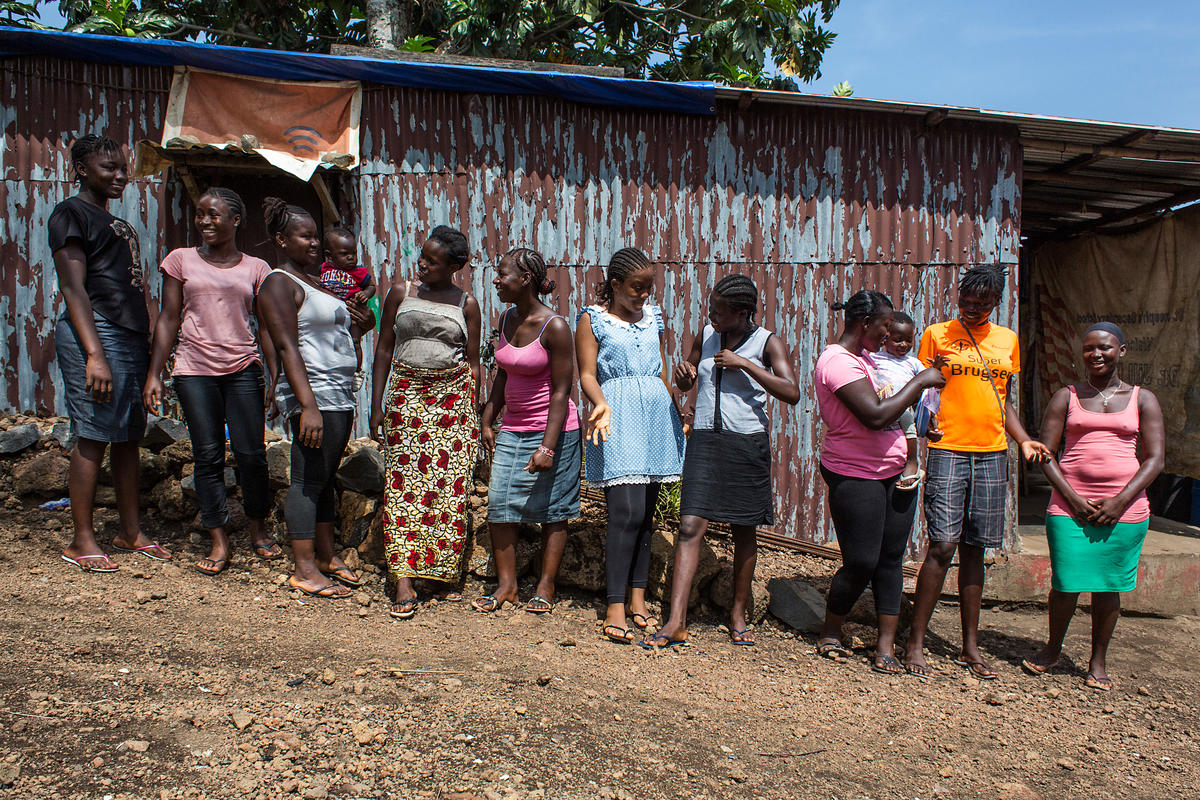It is the looks on their faces that gets you: frustration, anger, fortitude.
There is no ignoring their message: four young women, four young activists against child, early and forced marriage, all with stories of their own to share.
Last week I met these four girl delegates as we came together on the sidelines of the 65th session of the Commission on the Status of Women (CSW-65) to raise awareness about the worrisome increases in child, early and forced marriage driven by the COVID-19 pandemic.
Mariam, 14, from Syria; Vanessa, 22, from Venezuela; Rehima, 17, from Ethiopia; and Soanguimpali, 25, from Burkina Faso, generously and eloquently took time to revisit their own experiences and the activism stemming from them that has shaped their young lives.
Rehima, for example, is the house speaker of the children’s parliament in Ethiopia’s Gurage zone. She told the story of how she rejected a marriage that was being forced upon her at age 14. Three years later, Rehima is an outspoken and impassioned advocate for girls’ rights who is working to end child, early and forced marriage in Ethiopia.
Child, early and forced marriage represents one of the worst forms of gender-based violence, a violation of human rights against young women and girls, affecting more than 650 million worldwide. It has significant and lasting impacts on individuals, families, communities, and society.
Before the pandemic, Girls Not Brides estimated that around 12 million girls are married before age 18. That’s 23 girls every minute and nearly one every three seconds.
Thanks to global advocacy and partnerships, efforts to end child, early and forced marriage have made slow but sure progress. Over the past decade, Save the Children, the organization I help lead, has partnered with governments, communities, women and girls to accelerate this progress. There has always been a long way to go, and a lot of work to do, but we were moving in the right direction.
Then came COVID-19.
From the beginning of the pandemic, experts warned that those already affected by inequalities, including women and girls, would be hardest hit. As families struggle to cope with food shortages, job losses and other health, social and economic challenges, they adopt negative coping strategies, including forcing their girl children into child, early and forced marriage.
After years of progress to reduce child, early and forced marriage, alarming analysis by Save the Children in 2020 found that the pandemic is reversing that trend, putting half a million more girls at risk.
Now, less than a year later, new reports point to a sharp spike in gender-based violence, including child, early and forced marriage, and other harms facing girls, especially in humanitarian contexts.
Even before the pandemic, risk factors for girls — such as lack of access to education, increased poverty, and inadequate sexual and reproductive health services — were especially acute in humanitarian settings.
With the added disruptions of COVID-19, the most marginalized and deprived girls are being permanently pushed out of school and exposed to forms of violence, including child, early and forced marriage, which will have debilitating effects on the rest of their lives. Sadly, fallout from the pandemic means this is also increasingly a reality for girls outside of humanitarian contexts.
If we don’t act now, we’ll soon likely see the largest increase in child, early and forced marriage rates in more than two decades.
Fortunately, advocates like Mariam, Vanessa, Rehima and Soanguipali also shared their stories of strength, resilience and innovation in their communities. Save the Children co-hosted the dialogue, along with the United Nations Population Fund, UNICEF and the governments of Canada and Zambia, coming together in unison with the girl delegates to raise awareness about the issue and, hopefully, funds to urgently address it.
As we listened to their experiences, their young voices reminded us that child, early and forced marriage is not a girls’ problem, or a women’s problem, or any one nation’s problem. It is a global problem that we must all come together to address. COVID-19 has reminded us that our lives are interwoven and our problems are shared.
There is no one quick fix to end child, early and forced marriage. But to prevent existing progress from stalling — or reversing — we must prioritize several strategies. First, we need to work together to address and transform harmful gender norms so that families do not see child, early and forced marriage as the only viable option for their girls. This means engaging parents, grandparents, and men and boys — particularly those in powerful and influential roles like religious and traditional leaders or government personnel.
We also need better data on where child marriage is happening and greater investment to tackle it. There has been a chronic underfunding of protection response efforts for adolescent girls, with gender-based violence work accounting for only 0.12 per cent of all humanitarian funding. This is unacceptable.
Most significantly, we must listen to girls.
We need to prioritize girls’ voices and support their rights to safe and meaningful participation in political processes and in policy and program design. As Mariam, Vanessa, Rehima and Soanguipali show so clearly, girls know what works to make progress on the issues affecting them.
The good news is that, throughout the past year, we have seen a global movement of feminist organizations, activists, donors, foundations and governments coming together to stand with adolescent girls and young women. At Save the Children, we have renewed our commitment to listening, and we are encouraged to see others do so too.
By listening to girls and putting their perspectives front and centre, we can create a future in which every girl has full decision-making power over her future.
Danny Glenwright is president and CEO of Save the Children Canada.
Image credit: Save the Children




